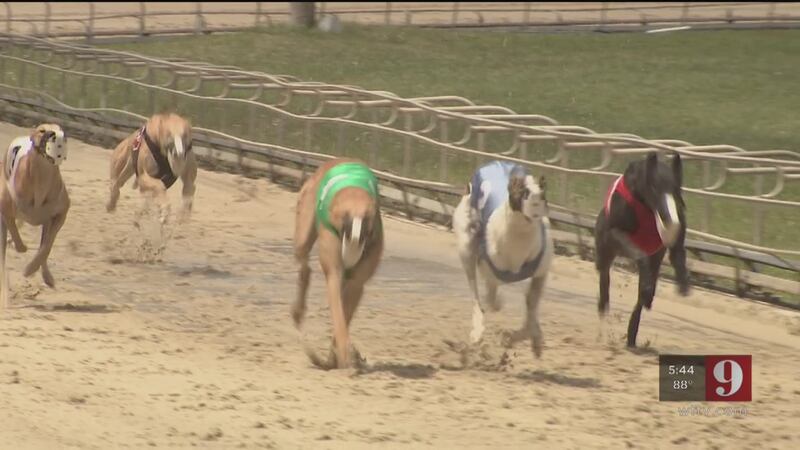BREVARD COUNTY, Fla. — On any given Tuesday afternoon in Melbourne, a half-dozen greyhounds will race around the track—and only six people will be watching.
Nationally, and across Florida, greyhound racing is not nearly as popular as it once was. But in Melbourne as well as at other tracks across the state, the dogs run so the tracks can keep their gambling licenses for simulcast and poker.
“In Brevard, the market is slim. Look around,” said James O’Brien of the Melbourne Greyhound Park, as he glanced over his shoulder at the rows of empty seats. “Our card room license is predicated on continuing racing the greyhounds.”
For the last six years, advocates have been pushing Florida lawmakers to pass what is known as “decoupling,” a plan that would allow the tracks to keep their simulcast and poker, but end the races if they choose.
The Melbourne track estimates it lost $180,000 running greyhound races in 2015. The track estimates it will lose just as much in 2016, in addition to the $150,000 upgrade of the kennels and facilities for the dogs at the park--an upgrade the track says is needed to keep the dogs well taken care of.
“Greyhound racing across the country is on a declining trend,” says O’Brien, whose track is one of 19 left in the country.
In 2012, the Naples-Fort Myers greyhound track reported it lost $2 million in dog racing. Since 1993, 10 states have banned greyhound racing.
“Right now, these tracks have become poker rooms, that just happen to have dogs running around in circles, with no one betting on the dogs,” says Carey Theil, the Executive Director of GREY2K USA, a greyhound advocacy group. “This is an industry that is dying. Right now, there is not a track in the country that is profitable on dog racing.”
In 2013, the Florida Legislature spent $388,845 on a comprehensive study of gambling in the state.
The study, conducted by New Jersey-based Spectrum Gaming Group, found that in 2011, the state’s greyhound tracks lost $30,000 on racing alone. That figure doesn’t include the cost of employees or expenses, which total an additional $4.7 million.
“Greyhound racing accounted for 30 percent of total handle in FY 2012,” wrote Spectrum in its report. “Total handle for the 13 facilities that ran greyhound racing fell from $933.8 million in FY 1990 to $265.4 million in FY 2012, a decline of 67 percent.”
Amid this decline, tracks and activists have called on Florida lawmakers to allow tracks to end the races, while allowing the tracks to keep their other forms of gambling.
In 2016, the Florida Legislature considered two proposals for decoupling, however, neither passed.
Advocates say they will try again in 2017.
While some tracks have said they would like to end the races, others have said they would consider keeping the races, but run far fewer.
Dog handlers and breeders have also voiced concerns about their futures and the futures of the dogs if racing ends.
Advocates say if the state allows for decoupling, the process will need to be gradual, so that handlers could adjust and new homes for the dogs could be found.
Cox Media Group







